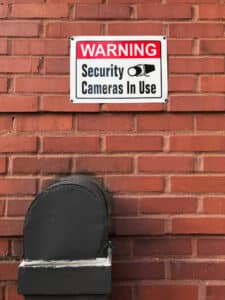Adverse Possession Laws Oklahoma
What’s a squatter? Well, it’s someone who sets up camp in a place they don’t legally own. They might be a former tenant who lost their rental or lease agreement, or they could just be living somewhere without permission from the owner.
Now, if you’re dealing with folks who shouldn’t be on your property, you’ve got to figure out if they’re squatters or plain old trespassers. See, in Oklahoma, the rules are different depending on what kind of intruder you’re dealing with.
When it comes to squatters in Oklahoma, the laws are pretty clear. This article will break down all you need to know about squatters’ rights and how to handle them, so you can keep your property safe and sound.
Is Squatting the Same as Trespassing?

Is a Holdover Tenant Like a Squatter?
No, a holdover tenant isn’t the same as a squatter. A squatter occupies property without permission, but a holdover tenant stays in a rental place after the lease ends. Even though their lease is up, they’re still a tenant. To remove them, the landlord must go through an eviction process.
Oklahoma Adverse Possession Law Made Simple
Let’s break down the Oklahoma adverse possession law without getting too fancy:
- Time Matters: For squatters to claim a property as theirs, they must have lived there continuously for at least 15 years.
- Other Requirements: In the United States, there are more rules squatters need to follow before they can claim a property.
- Color of Title: Think of this as “irregular ownership.” Squatters in Oklahoma need a specific type of title, like one from a tax assessor, which means they’ve been paying property taxes for five years. Winning an adverse possession case also gives them this special title.
- Actual Possession: Squatters have to physically be on the property and take care of it, like planting flowers or cleaning up.
- Hostile Claims: “Hostile” here means using the land without knowing it’s legally off-limits or even knowing it’s trespassing.
- Open and Notorious Possession: Squatters can’t hide. If someone checks, it should be obvious that they’re living there.
- Exclusive Possession: Squatters can’t share the land with anyone else.
- Continuous Possession: No long breaks allowed. They have to stay there without leaving for weeks or months during those 15 years.
So, in a nutshell, squatters in Oklahoma need to follow these rules and stay put for a long time before they can claim a property as their own.
Does Oklahoma Honor Color of Title Claims?

In Oklahoma, if squatters want to claim property through adverse possession, they need this special “color of title.” It’s a title they get from a tax assessor, but there’s a catch – they have to pay property taxes for five years in a row.
So, if a squatter manages to win an adverse possession case, they also get this fancy “color of title.”
How to Keep Squatters Away: Landlord’s Simple Plan
So, landlords, here’s the lowdown on how to keep squatters out without breaking a sweat:
- Use Signs: Stick some signs in front of your property that say, “We’re not looking for renters.” This makes it clear you’re not interested in any rental agreements.
- Construction Signs: If your place is empty and getting fixed up, slap some signs saying it’s under construction and will be up for rent soon. This scares off squatters because they know it’s not up for grabs.
- Neighborhood Watch: Chat up your neighbors and ask them to keep an eye out. If they spot anything fishy on your property, they can give you a heads-up.
- Lock It Up: Make it tough for squatters to sneak in. Put up fences or secure doors and windows. If you can, change the locks.

Frequently Asked Questions
How Can I Stop Squatters from Entering My Rental Property?
One effective way is putting up signs that clearly say your property is not available for rent. You can also talk to your neighbors and ask them to keep an eye out for any suspicious activity.
Can the Police Kick Out Squatters?
While the police can remove trespassers because trespassing is illegal, dealing with squatters is different. To get squatters out, you’ll need to go to civil court and follow the proper legal process since the police can’t remove them without doing so.
Does Keeping My Property in Good Shape Help Prevent Squatting?
Absolutely! It’s one of the best ways to deter squatters. Well-maintained properties are less attractive to squatters because they usually prefer neglected spaces. So, regular upkeep can go a long way in keeping squatters at bay.
Can You Lock Squatters Out?
You can evict squatters, but you have to do it the right way. If you’re stuck with squatters and need to get rid of them, talk to a legal pro in your area. They’ll help you understand their rights and the rules you must follow.
Why Is Getting Rid of Squatters Tough?
Kicking out squatters is as tricky as removing regular tenants. Some squatters try to claim tenant rights, which makes evicting them even harder and slower.




